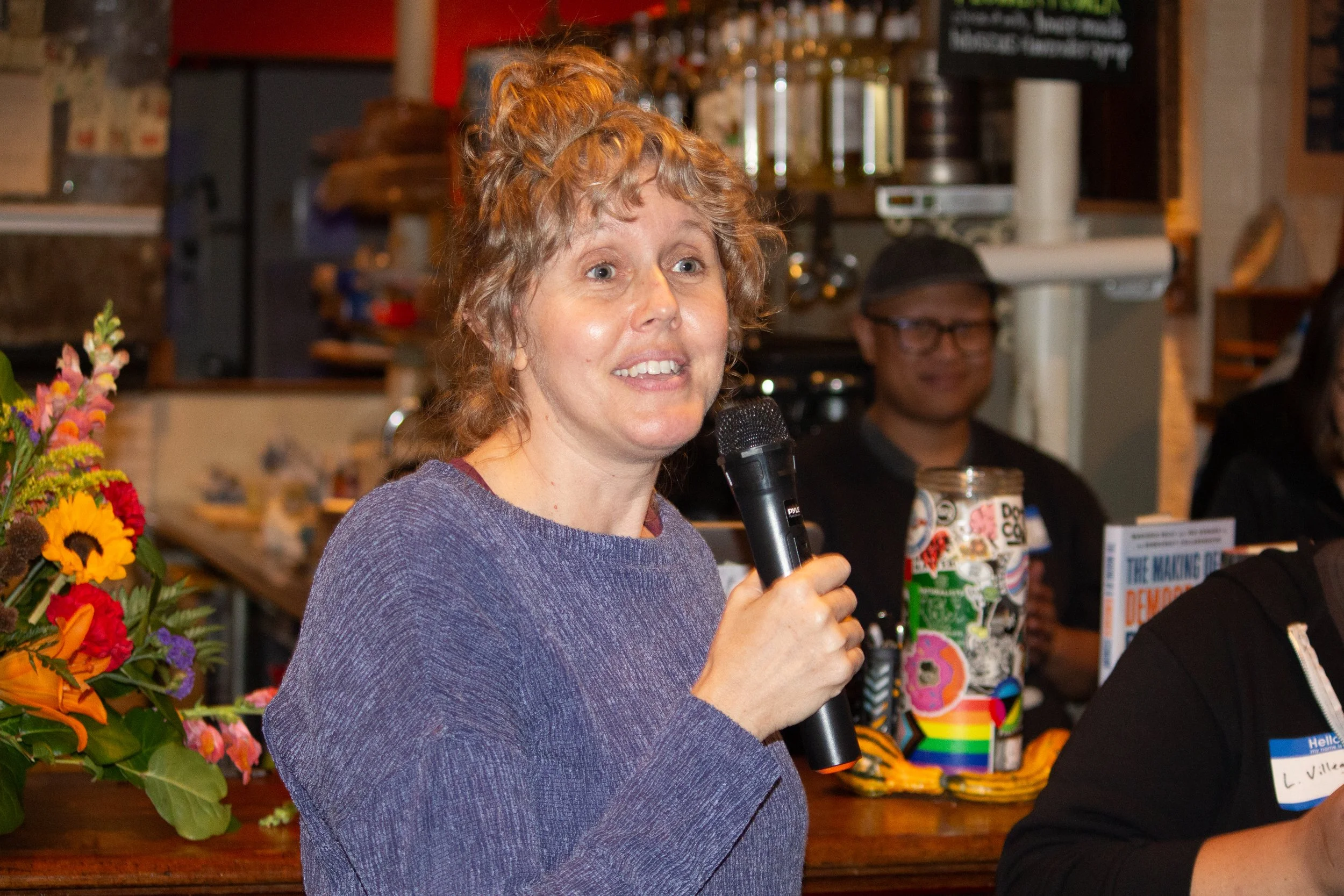
Worker Cooperatives are the future.
Why the cooperative model?
Owned by the people who do the work.
Shared Community Ownership
Instead of large, Wall Street firms owning the businesses on Main Street, we envision strong local economies that are owned by their workers and residents.
Sustainable Job Creation
Combining the cooperative model with community investment, we can sustainably create jobs for every single person, guaranteed. The cooperative model gives everyone a fishing pole, teaches them how to fish, and encourages them to pass it on.
Democracy at Work
Imagine if you could sit in a circle with your co-workers, identify your business’s problems, and solve them together. That’s how it works in a worker-owned cooperative.
What is a cooperative?
A cooperative is an enterprise that is owned and controlled by the people who use it. Most cooperatives are guided by the Cooperative Principles.
Cooperative Models
RIWCA specifically advocates for
Worker Cooperatives, but other types do exist.
-
Worker co-ops are for-profit enterprises whose employees are equal owners and operate the business democratically.
Smaller co-ops make decisions collectively, while larger co-ops tend to elect a Board with chief officers.
New employees join as apprentices and are granted the opportunity to buy in after a reasonable trial period.
Profits are typically distributed in proportion to hours worked.
Examples: Sol Power, White Electric
-
Social cooperatives or non-profit co-ops don't have owners, but are democratically operated by their stakeholders.
As the name implies, non-profit co-ops are organized for a charitable or social purpose and cannot distribute profits to shareholders (since they don't have any).
Social co-ops may also be referred to as a Cooperative Non-Profit or Worker Self-Directed Non-Profit.
Examples: Lefty Loosey Bike Collective
-
Housing co-ops are owned by residents. Think of it like an apartment building, except the tenants own the building together.
They bear some similarities to Home Owner Associations (HOAs), except the cooperative model operates on a 1 person : 1 share : 1 vote basis and co-op shares must be sold back to the co-op. This means housing cooperatives have price controls built in.
-
Credit unions are cooperative banks, owned and governed by their members. This model helps communities secure loans on more favorable terms.
Examples: Navigant Credit Union
-
Multi-stakeholder co-ops are a hybrid cooperative model, integrating multiple classes of owners so that every stakeholder has a voice. Workers and consumers, for example.
It is recommended that workers maintain majority stake in multi-stakeholder cooperatives, as they tend to perform best.
This model can serve as an innovative way to secure capital funding without taking on high-interest loans. It also gives community members a slice of their local businesses, so the local economy is owned by the locals.
Example: Heartleaf Books
We focus on Worker Cooperatives.
As the Rhode Island Worker Cooperative Alliance (RIWCA), our focus is to support worker-owned cooperative businesses or multi-stakeholder co-ops that ensure workers have a majority stake.
Combining workplace democracy with employee ownership reduces income and wealth inequality, lifts people up to become responsible business owners, and makes face-to-face democracy commonplace in our daily lives.
Workplace Democracy
Shared Ownership
Solidarity Economy
Workplace Democracy Shared Ownership Solidarity Economy
Become a co-op ally.
Are you starting a cooperative, converting your existing business into one, or just want to support our cause of building a cooperative economy in Rhode Island? Contact us to start the conversation.
We’re always willing to cooperate.






